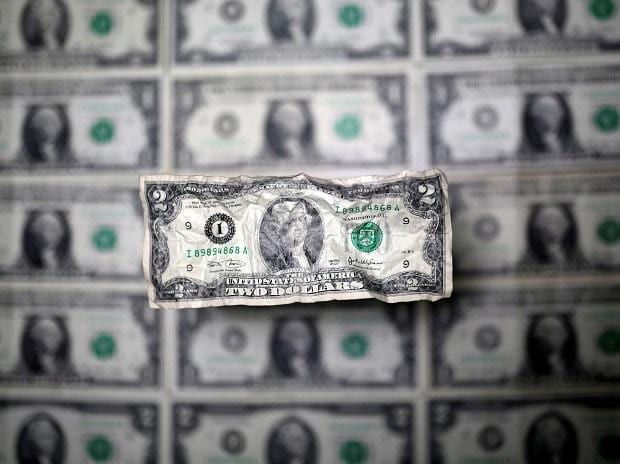[ad_1]
The dollar weathered another suspected blast of Japanese intervention to rise against the yen on Monday, while European markets got a lift from hopes that U.S. interest rates could rise more slowly than previously thought.
The dollar roared to 149.70 yen in early trade before hastily retreating to 145.28 in a matter of minutes in what traders and analysts said appeared to be at the hands of the Bank of Japan. It was last down almost 1% at 149.24.
Japan likely spent a record 5.4 trillion-5.5 trillion yen ($36.16 billion-$36.83 billion) in its yen-buying intervention last Friday, according to estimates by Tokyo money market brokerage firms. Japanese authorities did not confirm whether or not there had been intervention.
Any action to support the yen runs counter to the BOJ’s commitment to controlling Japanese government borrowing costs and could increase the pressure on it to step back on yield curve control at its policy meeting this week.
Sterling, meanwhile, see-sawed in volatile trade on news Boris Johnson had dropped out of the running for British prime minister.
Former finance minister Rishi Sunak, who is the market’s preferred candidate, has emerged as the front-runner for the job, which could reduce some of the political uncertainty hanging over the pound.
The news initially saw sterling jump almost a cent to $1.1402, but it could not hold and was last trading at $1.1328 as investors waited for more clarity. The leadership could potentially be settled later in the day if Sunak becomes the only candidate to secure the minimum number of MPs’ votes required to progress.
“The day-to-day is tricky. My favourite expression on all of it this morning is this is a time to be a poker player, not a chess player. It’s all about positioning and sentiment and understanding who you’re playing against,” Societe Generale strategist Kit Juckes said.
Equities mostly extended the bounce that began late in New York on Friday on talk the Federal Reserve was debating when to slow the pace of hikes and might signal a step back at its November meeting.
Markets are still priced for a rise of 75 basis points next month, but have scaled back bets on a matching move in December. The peak for rates has also edged down to around 4.87%, from above 5% early last week.
Fed officials, including San Francisco Fed President Mary Daly and St Louis chief James Bullard, indicated that the pace of tightening would be at the heart of any policy debate at November’s meeting.
ECB, BoC SET TO HIKE
“What this means for the markets is that the rates and FX markets could now become more sensitive to incoming economic data and any evidence of financial market stress,” MUFG head of research Derek Halpenny said.
The picture on the stock market was more mixed. European indices rose, ahead of an earnings-heavy week, with the STOXX 600 up 0.7% on the day, while emerging equities took a battering, largely due to a hefty sell-off in China.
Chinese blue chips slid almost 3%, while Hong Kong shares fell 6.4%, their biggest one-day drop since the financial crisis. The offshore yuan hit another record low against the dollar after Xi Jinping secured a precedent-breaking third leadership term, picking a top governing body stacked with loyalists. Xi is likely to stick to his zero-COVID policy that is damaging growth, analysts say.
Delayed data on gross domestic product (GDP) showed the Chinese economy grew 3.9% in the third quarter, above forecasts for 3.5%, but retail sales disappointed, with a rise of 2.5%.
Investors will get a look at U.S. GDP on Thursday and core inflation measures a day later. The economy is forecast to have grown an annualised 2.1% in the third quarter.
Sentiment will also be tested by some major earnings with Apple, Microsoft, Google-parent Alphabet and Amazon all reporting.
The European Central Bank meets this week and is widely expected to raise rates by 75 bps.
The euro fell 0.4% to $0.9824, having briefly been as high as $0.9899 early in the session.
The Bank of Canada is also expected to tighten by 75 bps at its meeting this week.
The possibility of a slowdown in U.S. rate increases helped bonds pare some of their recent heavy losses, with U.S. 10-year Treasury yields easing to 4.16% compared to a 15-year peak of 4.337% on Friday. [US/]
Oil fell after soft data on Chinese demand. Brent dropped 0.7% to $92.83 a barrel, while U.S. crude lost 1.1% to trade at $84.14. [O/R]
(Reporting by Wayne Cole; Editing by Jacqueline Wong, Christopher Cushing, Susan Fenton and Nick Macfie)
(Only the headline and picture of this report may have been reworked by the Business Standard staff; the rest of the content is auto-generated from a syndicated feed.)
[ad_2]
Source link



